Basic Formation ...
BASIC FORMATION IN THE FIRST THREE & A HALF YEARS
6,3 This formational period of 3 1/2 years will completed in the appropriate canonically-established houses (cf. CIC 647 §§1-2) and with the appropriate formators, according to the norms of the present Statute, within the constraints of Ch. 6,1a.
6,3a In order that the passage from one step to another may be validly completed, there will always be a letter of evaluation by the formators to the respective Servant Generals and (for their information) to the Board of Directors; likewise, there must be a favorable vote by the majority of the members of the Board of Directors, according to the norms of Ch. 2,15 of this present Statute.
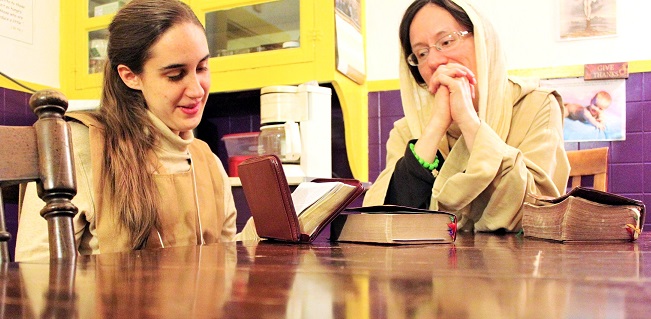
House of Formation for the brothers
6,4 THE FORMATION HOUSE for the members (as long as there is no possibility of having more houses available for this purpose) will be divided into three parts - as far as possible - in the following way, distinguishing the following areas:
AREA A) the place of experience and postulancy, with a formator nominated according to the norms of the present Statute (cf. Ch. 7,4b);
AREA B) the place of novitiate, with a formator nominated in the same way;
AREA C) the place of residence for those in post-novitiate, with a formator (possibly specialized in Sacred Fundamental or Spiritual Theology), also nominated in the above way.
House of Formation for the Sisters
6,5 THE FORMATION HOUSE for the sisters is distinct from that of the brothers.
Formation in the first 18 months (experience and pre-novitiate)
6,6 The tools for discernment and the required documents are, chronologically, the following:
a) To start with, 2 OR 3 WEEKENDS of experience to mutually get to know one another (if possible in the guest area).
b) Then about 15 DAYS of experience.
c) Then an experience of at least 6 MONTHS (prolongable), at the beginning of which one must present the FOLLOWING DOCUMENTS of accompaniment: 1) Certificates of Baptism and Confirmation; 2) Letter of presentation by a priest (and, for those who come from poor countries, a letter of presentation by the Bishop; the same thing applies for those who need permission from a foreign embassy); 3) Certificate of good health, and possibly, if requested by the Superiors (depending on the situation), also a certificate of psychological health, to attest that the candidate has the adequate human maturity to be able to fully live the charism, according to the logic of can. 642 CIC; 4) Criminal record (which does not necessarily influence entry, according to the discernment of the formators); 5) The candidates must provide their own two-way tickets, providing a letter which explicitly declares this; 6) Candidates who come from abroad must carry all of these documents with them from the very beginning, even before starting the 6 months of experience; 7) A signed declaration which makes it clear that the residence in the house of the PFSGM does not in any way constitute an employment relationship.
d) Then follows 1 YEAR OF TEST called the postulancy (within the constraints of Ch. 6,3a).
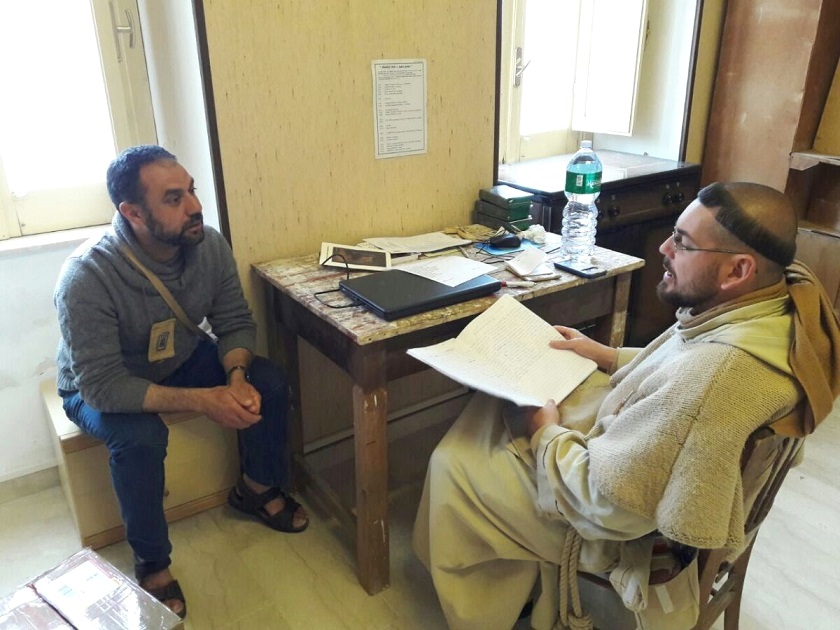
Spiritual Formation:
6,7
a) STRUCTURED PRAYER, going deeper every day with: morning Eucharistic Adoration, the Liturgy of the Hours, the Eucharistic Celebration, the meditated Rosary, and (weekly) the Sacrament of Penance.
b) STUDY OF CATHOLIC DOCTRINE, done in stages.
c) BIBLICAL COURSE, according to the character of the Community.
d) SPECIFIC SPIRITUAL COURSE, primarily on the lives of Saint Francis of Assisi, St. Thérèse of Lisieux, St. Pio of Pietrelcina and St. Maximilian M. Kolbe.
e) THE SPIRITUALITY IS INCREASINGLY ENRICHED with further study of the life of other saints. All this should be done with serenity and gradually.
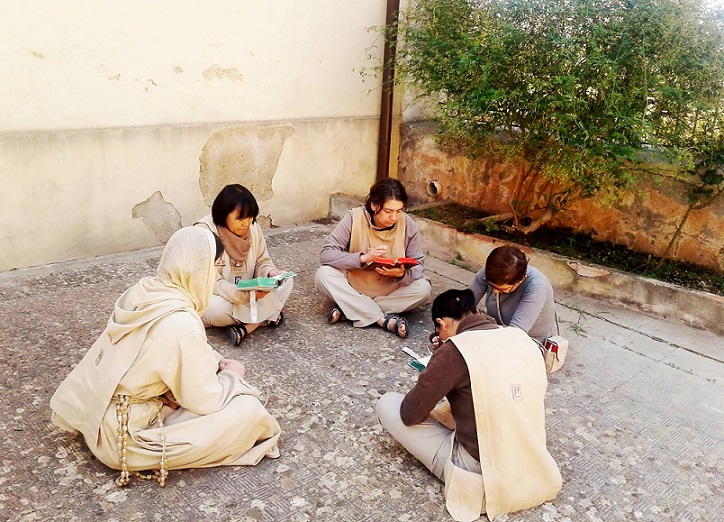
Existential Formation:
6,8 The spiritual formation mentioned above will be based, not on the sandy foundation of words alone (cf. Matt 7:26-27), but on the rock foundation of the "concrete practice" of the Gospel (cf. Matt 7:24-25), as Jesus teaches (cf. Luke 6:47-48). Hence, all of the formation will be constantly accompanied by the practical experiences of ordinary and extraordinary missionary activity.
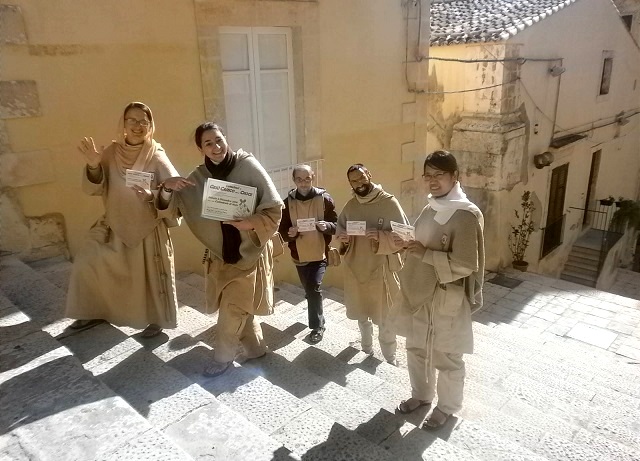
Formation during the 2 years of novitiate
6,9 The conditions required for admission into the novitiate are the following:
a) Full communion with the faith, sacraments and government of the Catholic Church.
b) Convinced adherence to the style of life expressed in the present Statute.
c) Aspiration to holiness which has its origin in Christ (cf. LG 40, 47).
d) The minimum age of 17 years established by the code (cf. CIC 643).
6,10 The following, in particular, will be the object of further study:
a) Sacred Scripture.
b) Spiritual theology, especially of the consecrated life and the evangelical counsels.
c) The History of the Church (in a gradual way).
d) Occasional experiences of apostolic life done outside the formation house (cf. CIC 648 §2), in order to better and more deeply understand the charism of the Little Friars and Little Nuns.
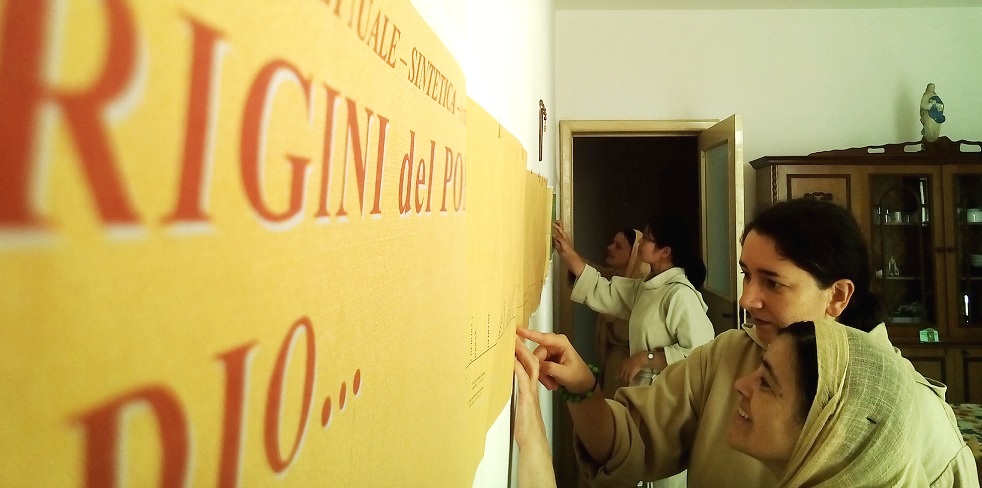
6,11 The novitiate, in order to be juridically valid (in addition to conforming to the norms of Ch. 6,3a), must be completed in a house duly designated for that purpose (except in particular or exceptional cases by the concession of the Servant General with the agreement of his Board of Directors), or in another house of the Institute under the guidance of an attested religious who takes the place of the novice master (cf. CIC 647 §2-3).